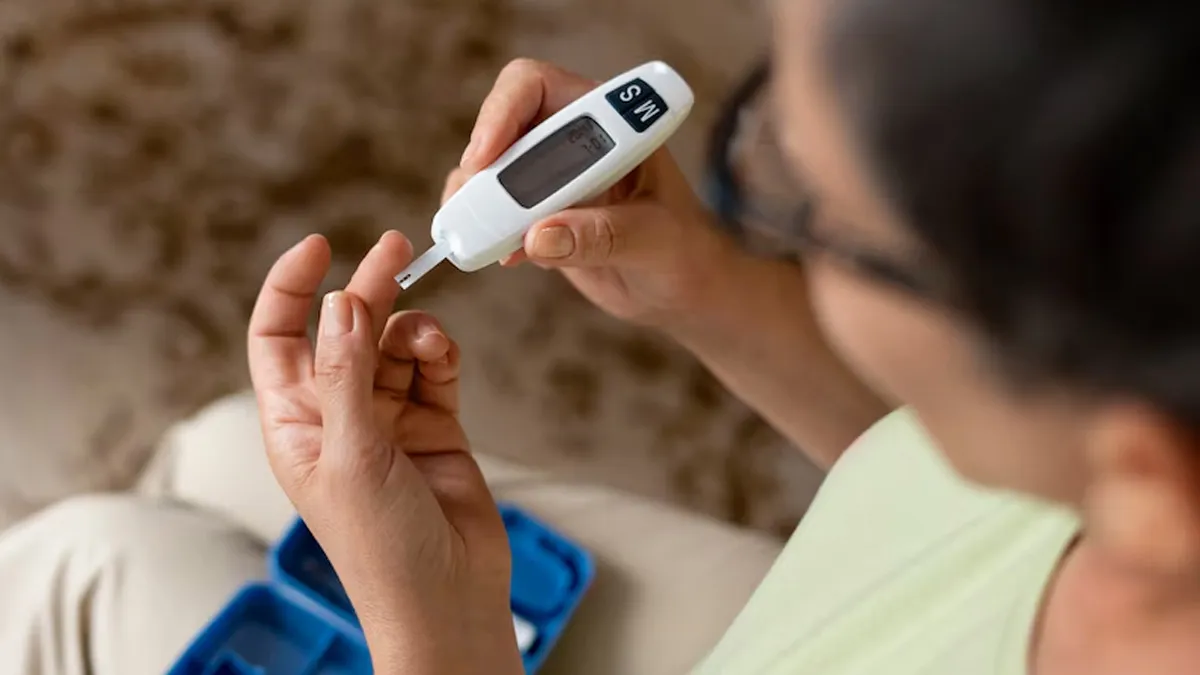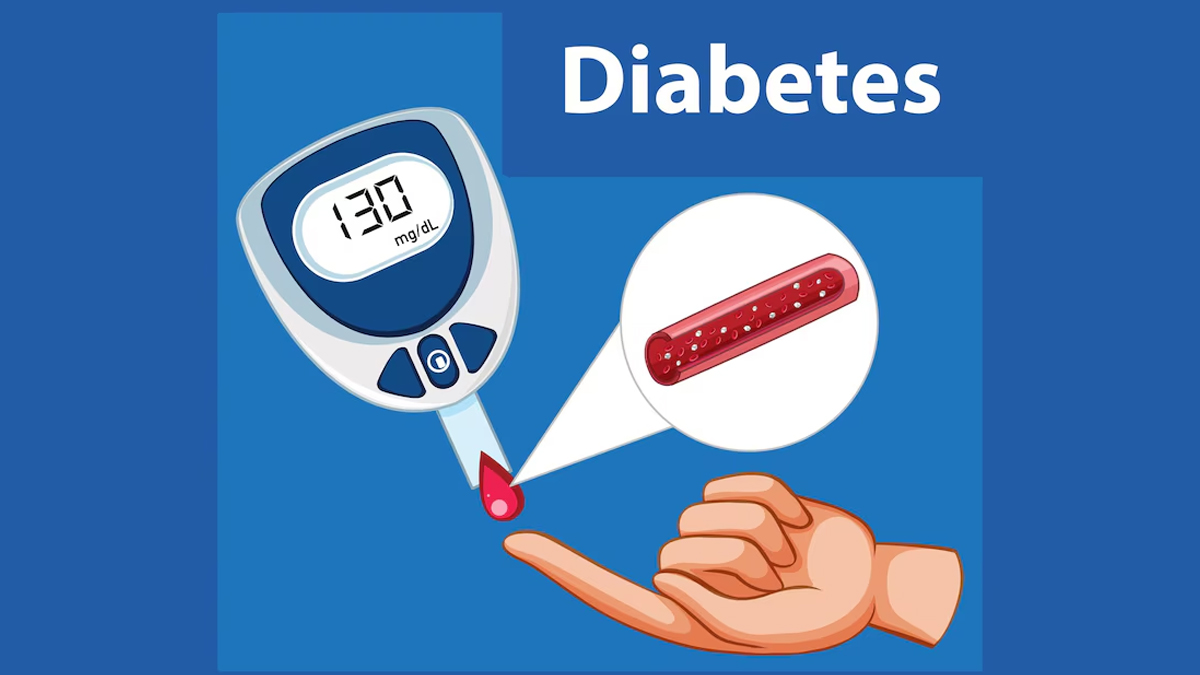
Being diagnosed with pre-diabetes is a wake-up call, not a life sentence. It signals that your blood sugar levels are elevated but not yet in the diabetic range. However, it is a crucial juncture, approximately 20 to 25 percent of individuals with pre-diabetes may progress to full-blown diabetes within three to five years. To avoid this trajectory, immediate and effective action is necessary. Here’s what you should do to manage and reverse pre-diabetes.
Table of Content:-
What Is Pre-Diabetes?

Pre-diabetes is a condition where blood sugar levels are higher than normal but not high enough to be classified as type 2 diabetes. It serves as an early warning sign that the body is starting to lose its ability to regulate blood sugar effectively. This condition often occurs when the cells become resistant to insulin or the pancreas fails to produce enough insulin to maintain normal blood sugar levels. While pre-diabetes may not always present noticeable symptoms, it significantly increases the risk of developing type 2 diabetes, heart disease, and stroke. Recognising pre-diabetes as a critical health signal allows for timely interventions to prevent progression and associated complications.
To understand what active step one should take after being diagnosed with pre-diabetes, OnlyMyHealth team interacted with Dr Bharesh Dedhia, Consultant - Intensive Care, PD Hinduja Hospital & MRC, Khar, Mumbai.
1. Understand the Diagnosis
Pre-diabetes indicates your body’s struggle to regulate blood sugar effectively. Dr Dedhia explained, "So if you have been diagnosed with prediabetes, that means your blood sugars are elevated but still not in the diabetes range. So about 20 to 25 percent of people who have prediabetes will progress to a full-blown diabetes state in the next three to five years."
Acknowledging this diagnosis is the first step toward prevention.
2. Adopt a Healthy Diet

What you eat plays a pivotal role in regulating blood sugar. Avoid processed foods, fried snacks, sugary beverages, and high-fat meals. Instead, focus on a diet rich in fibre, lean proteins, whole grains, and fresh vegetables. Dr Dedhia advises, "Eating a good healthy diet and staying away from foods which are full of fat and or fried, that's important." Monitoring portion sizes and eating balanced meals at regular intervals can also help stabilise blood sugar levels.
Also read: 6 Dietary Changes That Can Help Control Pre-Diabetes
3. Incorporate Regular Exercise
Physical activity is vital in preventing the progression of pre-diabetes. Exercise aids in weight loss, improves insulin sensitivity, and helps reverse metabolic changes. Aim for at least 150 minutes of moderate aerobic activity or 75 minutes of vigorous activity per week. Include strength training exercises to build muscle mass, which can further enhance blood sugar regulation. According to Dr Dedhia, "Regular exercise is very very important because that not only helps you lose weight but it also helps to reverse a lot of these metabolic changes which are happening in your system."

4. Focus on Weight Loss
Obesity is a significant risk factor for diabetes. Shedding even 5-10% of your body weight can dramatically improve blood sugar levels and lower the risk of diabetes. Identify sustainable weight loss strategies that suit your lifestyle, whether it’s through dietary changes, exercise, or professional guidance.
5. Quit Smoking
Smoking exacerbates insulin resistance and increases the risk of cardiovascular diseases, which are common complications of diabetes. If you’re a smoker, quitting immediately is essential for reversing pre-diabetes. Dr Dedhia emphasises, "If you smoke regularly, then obviously complete stoppage or cessation of smoking is very important."
6. Monitor Your Health Parameters
Regular health check-ups are critical. Keep an eye on your blood pressure, cholesterol, and triglycerides, as abnormalities in these can contribute to diabetes progression. If any of these parameters are out of range, seek appropriate medical treatment to bring them under control. Dr Dedhia highlights the importance of this, stating, "Regularly monitor your blood pressure, cholesterol and make sure that they are in the normal range and treat those conditions if they are abnormal."
Also read: Recently Got Diagnosed With Type 2 Diabetes? 6 Things To Keep In Mind
7. Manage Stress

Chronic stress can elevate cortisol levels, which negatively impacts blood sugar control. Engage in activities that promote relaxation, such as yoga, meditation, or deep breathing exercises. Cultivating a calm mindset is as important as maintaining physical health in preventing diabetes.
8. Stay Informed and Seek Support
Educate yourself about pre-diabetes and its risks. Join support groups or work with a healthcare professional to create a personalised plan. Knowing you’re not alone in this journey can provide motivation and accountability.
9. Lifestyle Modification: The Key to Prevention
Dr Dedhia underscores the importance of overall lifestyle changes, stating, "So overall, a lifestyle modification is the key to prevent reaching that stage." This includes a combination of healthy eating, physical activity, weight management, smoking cessation, and regular health monitoring.
Conclusion
Pre-diabetes is a reversible condition if managed proactively. By implementing these changes, you can not only prevent diabetes but also improve your overall quality of life. Remember, it’s never too late to make a positive change. Take charge of your health today to secure a better tomorrow.
Also watch this video
How we keep this article up to date:
We work with experts and keep a close eye on the latest in health and wellness. Whenever there is a new research or helpful information, we update our articles with accurate and useful advice.
Current Version
